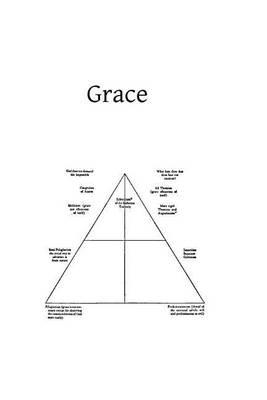Overview
Let us consider the meanings of the word 'grace' set forth in the introduction to this excellent work: The various meanings are indicated by St. Thomas (Ia Iae, q. 110, a. I), but it is fitting that we say something of them at the beginning so that the connection may be apparent between the present question and the questions relating to God's love for us. First, there are of course three acceptations of this word grace even used in human affairs. For grace originally refers to something which is not due or is freely bestowed; this meaning is very common in both profane and biblical writings. Hence even in purely human matters the term grace has a threefold application, as follows: I. The love of benevolence conferring a gift which is not due; for example, we say: This soldier has the grace of the king. 2. The gift itself freely bestowed; thus we say: I grant you this grace. 3. Gratitude for a benefit received; thus: I render you thanks for your benefits. Moreover, these three significations may be transferred to the supernatural order, whereupon the word grace applies to the following. 1. The love of benevolence on the part of God, conferring supernatural life. This love of God is uncreated grace. 2. The supernatural gift of grace itself, freely bestowed and ordained to eternal life; this is created grace, of which we are now treating, whether it is interior or exterior, such as the preaching of the gospel. 3. Our gratitude to God. Between the human and the supernatural meanings of the word grace there lies a great difference which is principally based upon the fact that God's love of benevolence for us, as stated in la, q. 20, a. 2, infuses and creates goodness in things, whereas the love of benevolence of one man for another presupposes something lovable in that other. But God's love for the creature is twofold, the common love whereby natural being is bestowed on created things, and the other special love by which God raises the rational creature above the state of nature unto a participation in the divine good. Thus grace is the effect of the love of God in us and signifies the supernatural gift freely granted by God to an intellectual creature ordained to eternal life (Ia IIae, q. 110, a. I). Thus the whole treatise on grace in the Summa theologica of St. Thomas depends upon the treatise on the love of God (la, q. 20), in which are expressed and explained two supreme principles which throw a light from above upon all the articles of the treatise on grace and virtually contain them. Hence St. Thomas says: It is demonstrated above (q. 19, a. 4) that the will of God is the cause of all things; so it must be that so far as a thing possesses being or any' good whatever, to that extent it is willed by God. Therefore God wills some good to whatever exists. And since loving is nothing else but wishing well to someone, it is clear that God loves all things that are, not however in the same way as we do. Our will is not the cause of the goodness of things. But the love of God infuses and creates goodness in things (la, q.20, a. 2). Accordingly the will of God is also the cause of the goodness of our acts, while preserving their liberty. As St. Thomas says: If the will of God is most efficacious, it follows not only that those things will be done which God wills to be done, but that they will be done in the way God wills them to be done. Thus God wills certain things to be necessary, others to be contingent, that there may be order among things for the perfection of the universe (la, q. 19, a. 8).
Full Product Details
Author: Rev Reginald Garrigou-Lagrange Op ,
Brother Hermenegild Tosf ,
Brother Hermenegild Tosf
Publisher: Createspace Independent Publishing Platform
Imprint: Createspace Independent Publishing Platform
Dimensions:
Width: 15.20cm
, Height: 2.80cm
, Length: 22.90cm
Weight: 0.726kg
ISBN: 9781484159682
ISBN 10: 1484159683
Pages: 548
Publication Date: 19 April 2013
Audience:
General/trade
,
General
Format: Paperback
Publisher's Status: Active
Availability: Available To Order

We have confirmation that this item is in stock with the supplier. It will be ordered in for you and dispatched immediately.



